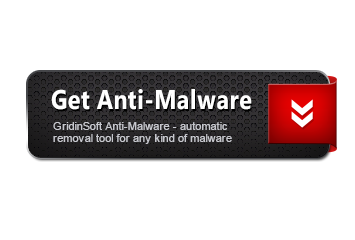The Trojan.Win32.Mycop is considered dangerous by lots of security experts. When this infection is active, you may notice unwanted processes in Task Manager list. In this case, it is adviced to scan your computer with GridinSoft Anti-Malware.

Gridinsoft Anti-Malware
Removing PC viruses manually may take hours and may damage your PC in the process. We recommend using GridinSoft Anti-Malware for virus removal. Allows to complete scan and cure your PC during the trial period.
What Trojan.Win32.Mycop virus can do?
- Injection (inter-process)
- Injection (Process Hollowing)
- Executable code extraction
- Injection with CreateRemoteThread in a remote process
- Creates RWX memory
- Reads data out of its own binary image
- A process created a hidden window
- Drops a binary and executes it
- HTTP traffic contains suspicious features which may be indicative of malware related traffic
- Performs some HTTP requests
- The binary likely contains encrypted or compressed data.
- Uses Windows utilities for basic functionality
- Executed a process and injected code into it, probably while unpacking
- Sniffs keystrokes
- A process attempted to delay the analysis task by a long amount of time.
- Attempts to repeatedly call a single API many times in order to delay analysis time
- A potential decoy document was displayed to the user
- Steals private information from local Internet browsers
- Installs itself for autorun at Windows startup
- Creates a hidden or system file
- Checks the CPU name from registry, possibly for anti-virtualization
- Harvests credentials from local FTP client softwares
- Harvests information related to installed mail clients
- Collects information to fingerprint the system
Related domains:
z.whorecord.xyz |
a.tomx.xyz |
checkip.amazonaws.com |
How to determine Trojan.Win32.Mycop?
File Info:
crc32: E1651300md5: 634eeb7ad351e52971d076bd3a4ea30dname: classic.jpgsha1: ca093e134f7299c89e53fd52aa6ffc33c7bc2746sha256: f447602e2e1b241ed726f0e84a5ee84577bc97681b4bbac6cf2560afb4236fccsha512: b087dd460b0e9ce6540c0d10016acf3edeb4740dd50ace9f8270be5303617972474562eadf30213807ebc4100c718f4ae19caab2f306e77c2b0b3d6dfaa71a48ssdeep: 24576:/2O/Glg6zr/aYFLy2TXMx0M8KiNlA/wmxhKbH3rUO46G6lNejU/QUCS:R8/hrwCZNlGwmxUT3iylN9QlStype: PE32 executable (GUI) Intel 80386, for MS WindowsVersion Info:
0: [No Data]
Trojan.Win32.Mycop also known as:
| MicroWorld-eScan | Trojan.GenericKD.32010000 |
| FireEye | Generic.mg.634eeb7ad351e529 |
| ALYac | Trojan.GenericKD.32010000 |
| Cylance | Unsafe |
| Sangfor | Malware |
| K7AntiVirus | Trojan ( 0054ea4c1 ) |
| BitDefender | Trojan.GenericKD.32010000 |
| K7GW | Trojan ( 0054ea4c1 ) |
| Cybereason | malicious.ad351e |
| TrendMicro | TROJ_GEN.R002C0PET19 |
| Symantec | Trojan Horse |
| APEX | Malicious |
| Avast | Win32:Trojan-gen |
| ClamAV | Win.Trojan.Autoit-6870735-0 |
| GData | Trojan.GenericKD.32010000 |
| Kaspersky | Trojan.Win32.Mycop.gen |
| Alibaba | Trojan:Win32/Starter.ali2000005 |
| NANO-Antivirus | Trojan.Win32.AutoIt.fqpssv |
| AegisLab | Trojan.Win32.Mycop.4!c |
| Ad-Aware | Trojan.GenericKD.32010000 |
| Sophos | Mal/Generic-S |
| Comodo | Malware@#2vq7pvmt4n4yy |
| F-Secure | Dropper.DR/AutoIt.Gen |
| DrWeb | Trojan.AutoIt.436 |
| Invincea | heuristic |
| McAfee-GW-Edition | BehavesLike.Win32.Backdoor.tc |
| Emsisoft | Trojan.GenericKD.32010000 (B) |
| Ikarus | Trojan.Win32.Injector |
| Cyren | W32/Trojan.KALW-7346 |
| Jiangmin | Trojan.Miner.ffr |
| Avira | DR/AutoIt.Gen |
| Endgame | malicious (high confidence) |
| Arcabit | Trojan.Generic.D1E86F10 |
| ZoneAlarm | Trojan.Win32.Mycop.gen |
| Microsoft | Trojan:Win32/Occamy.C |
| AhnLab-V3 | Malware/Win32.Generic.C3273200 |
| McAfee | Artemis!634EEB7AD351 |
| Panda | Trj/CI.A |
| Zoner | Probably RARAutorun |
| ESET-NOD32 | Win32/Injector.Autoit.DYV |
| TrendMicro-HouseCall | TROJ_GEN.R002C0PET19 |
| MAX | malware (ai score=99) |
| MaxSecure | Trojan.Malware.1728101.susgen |
| Fortinet | AutoIt/Injector.DYV!tr |
| AVG | Win32:Trojan-gen |
| Paloalto | generic.ml |
| CrowdStrike | win/malicious_confidence_60% (W) |
| Qihoo-360 | Win32/Trojan.87a |
How to remove Trojan.Win32.Mycop?
- Download and install GridinSoft Anti-Malware.
- Open GridinSoft Anti-Malware and perform a “Standard scan“.
- “Move to quarantine” all items.
- Open “Tools” tab – Press “Reset Browser Settings“.
- Select proper browser and options – Click “Reset”.
- Restart your computer.



Leave a Comment